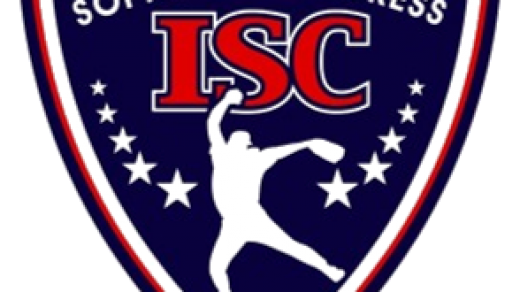Of the many people responsible for the growth and success of men’s slow pitch softball throughout the United States, none had a greater impact or love of the game as Richard Howard, a truly amazing individual in every respect. The former Marine who never left his roots in Denver, North Carolina, Mr. Howard was a true Horatio Alger, building a successful business empire through hard work, loyalty and integrity. As he was building his family and his businesses consisting of furniture, retail food establishments as well as distribution, real estate, bowling establishments, insurance, auto racing and other enterprises, he became interested in slow pitch through his church team in the 1950’s.
As time went on, his team improved and began developing a winning reputation in North Carolina. The players were all from the North Carolina area and among some of the original team members were Don Arndt and Gene Fisher, both destined to become all-time greats. Their first ASA National Tournament was in 1969 and they lost their first two games. Eventually, they picked up players from other North Carolina teams and continued to improve, finishing 4th in the ASA Nationals in Jacksonville in 1972 where Don Arndt was named MVP.
In 1973, Mr. Howard determined to win a title and he did so by recruiting Bert Smith, the MVP of the 1968 and 1991 ASA Nationals with County Sports and Virginia Piledrivers from Virginia Beach, Stan Harvey and David Carroll from Tennessee and H.T. Waller from Florida. He also prevailed upon his neighbor, Tony Cloninger, who had recently retired from Major League Baseball after a very successful 15 year career to come in to play 3rd base. This combination of players,together with Denny Hogan, Randy Ewing, Tommy Maiden and Steve Howard, won their first championship, beating County Sports twice in the Finals. Bert Smith was again MVP.
Howard’s repeated that championship in 1974 in York, Pa., defeating Jerry’s Catering in the Finals. 1975-77 was an unusual period with no championships but the team returned to form in 1978, winning the USSSA World Series in Petersburg, Va. over arch-rival Dave Carroll Sports after barely losing out to Campbell’s in the ASA Championship. Denny Hogan was MVP and among the contributors that year was Rick Sherr who joined Howard’s in 1977.
In 1981, Howard’s put together its best team and one of if not the best team ever assembled with a combination of defense, hitting, baserunning, depth and the ability to adapt to all conditions. In addition to stalwarts Arndt, Harvey, Sherr, Tom Beall and Howard, Dick Bartel, Richard Willborn, Buddy Slater and Bill Ferguson came aboard. Additionally, Mike Cellura played for Howard’s in the NSPC and was all-tournament there. This team won everything from the Hejaz Classic in Spartanburg to the Smoky Mountain to the NSPC regular season. For Ferguson, Slater and Willborn, it was their third straight Triple Crown. Randy Gorrell and Bob Lutz, Jr. guided the team from the bench and in the Triple Crown Tournaments, Howard’s lost a total of 1 game.
Although favored to win in 1982, they came up short but rebounded in 1983 with another ASA Super Division crown. Until 1989, when he retired from softball, Richard Howard was one of the most respected individuals in the history of the sport. He treated everyone with respect and kindness and did everything he could to better the sport. It is a real tribute that most of the players he brought to his team stayed in North Carolina throughout their careers and raised their families close to the Howards. Among two examples are Stan Harvey, who moved from Tennessee in 1973, stayed the rest of his life with his family, including son Bryan, who became one of the best closers in the Major Leagues. Similarly, Rich Sherr, whose son grew up in Denver, NC and is one of the top performers in the WWE. Of course, Bob Lutz, Jr. one of the top coaches in college basketball, learned much from his father and uncle and growing up around and coaching Howard’s Furniture.
An amazing legacy of an amazing individual who built a championship team on the field he constructed in his back yard.



